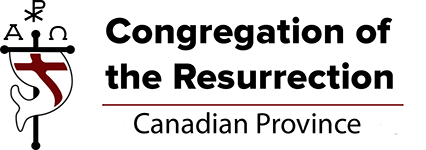Locusts and Wild Honey
- Fr Raphael Ma, CR
- Mark 1: 1 - 8
A Resurrectionist Vocation Minute for December 10, 2nd Sunday of Advent
Locusts and Wild Honey
In our Gospel this Sunday, we have the striking figure of St. John the Baptist. I don’t think we realize just how popular John the Baptist actually was in his time. It’s thought he was actually more popular than Jesus during his lifetime –
“…people from the whole Judean countryside and all the people of Jerusalem were going out to him, and were baptized by him in the river Jordan, confessing their sins.”
Certainly there would have been some people who just tagged along to see what everyone else was talking about, but receiving John’s baptism of repentance was a very public act of recognizing what John was preaching and accepting it. In Matthew’s Gospel, when the chief priests and the elders of the people are having a dispute with Jesus, Jesus asks them whether they are of the opinion that the baptism of repentance administered by John the Baptist came from Heaven or was merely a human invention, we are told that they are reluctant to say anything, because “all” regarded John as a prophet.
What was it about John that was so striking? There was no contradiction in him. Everything about him pointed to his message, right down to the strange detail about wearing clothes made of camel’s hair, with a leather belt around his waist, and eating locusts and wild honey. The camel hair and leather belt was a clear reference to the prophet Elijah, considered by the Jewish people to be the greatest of the prophets, and who would return before the “great and terrible” Day of the Lord (Malachi 4:5). In 2 Kings 1:8, Elijah is described as wearing – clothing made from animal hair, and a leather belt.
As for his food, whether he actually ate insects or beans from the Ceratonia siliqua or Carob tree – also called the “locust tree” – and wild honey, the point is John the Baptist depended in a radical way on God’s providence, and people knew it. Pope St. Paul VI famously said: “Modern man listens more willingly to witnesses than to teachers, and if he does listen to teachers, it is because they are witnesses.” What are the locusts and wild honey in your life? Are you willing to live in such a way that everything in your life points to God?
“By evangelical poverty we worship God by acknowledging our total dependence on him. We detach ourselves from material things so that we may give ourselves more fully to the imitation of the poor Christ and to the exercise of the apostolate. We give witness to the world of the supreme importance of storing up treasure in heaven.”
CR Constitutions, 21
